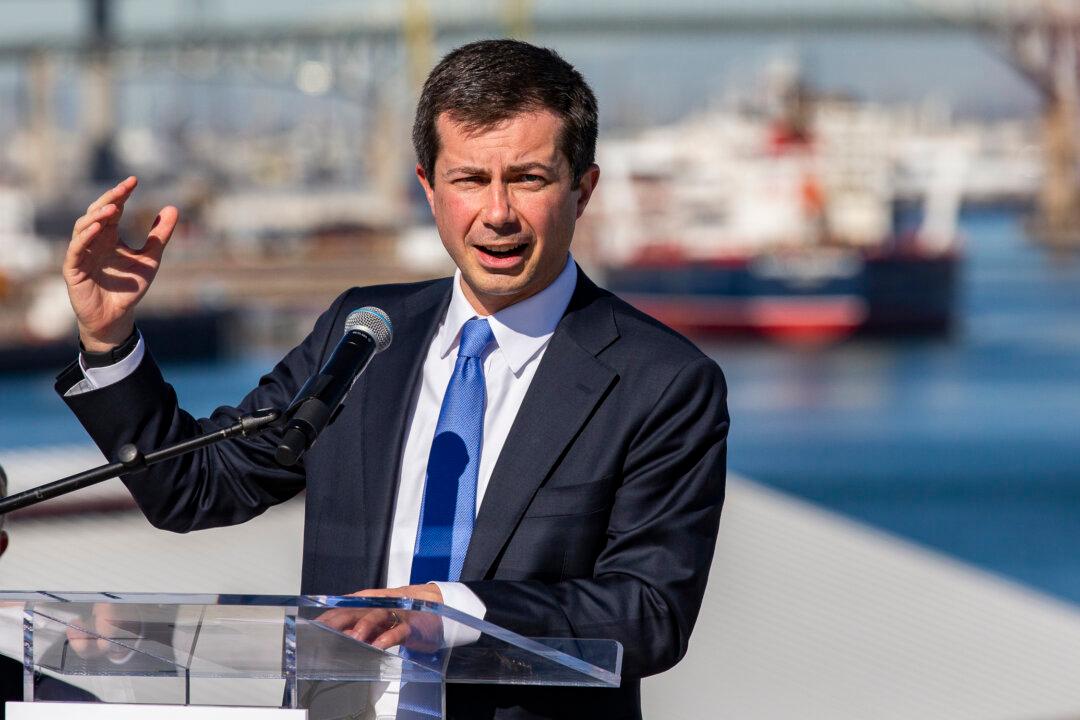Transportation Secretary Pete Buttigieg, who has been helping the Biden administration push electric vehicles (EV) onto reluctant Americans stubbornly attached to reliable gas- and diesel-powered cars and trucks, has admitted to having problems with his own EV.
Mr. Buttigieg, a figurehead of the Biden administration’s all-in push for the widespread adoption of EVs, admitted in a recent interview with the Wall Street Journal that he’s had trouble finding reliable EV charging stations while on the road.





